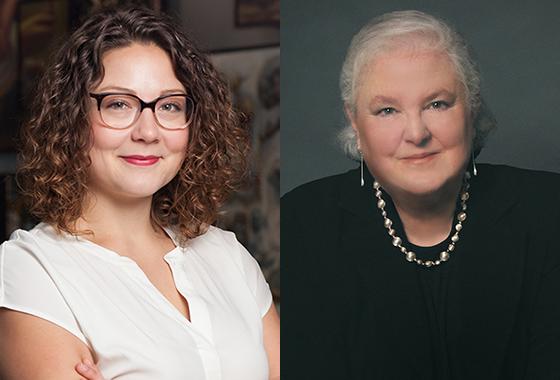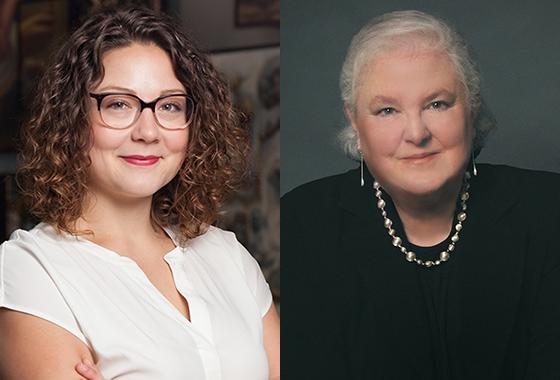
Credit: Madelyne Greene & Penn Nursing
(PHILADELPHIA) – April 4, 2017 – Nurses with research doctorates have led important work that has proven vital in improving patient outcomes and enhancing quality of care. Yet today, fewer than five percent of nurses have PhDs, the education level typically needed to perform independent research, according to data from the National Institute of Nursing Research, part of the National Institutes of Health. Coupled with the aging and retirement of the current cadre of nurse researchers, these indicators point to a coming shortage of nurse scientists that could impact current and future contributions to science.
To meet this challenge, the Hillman Program in Nursing Innovation, developed the idea for an integrated BSN to PhD program to accelerate education opportunities for the next generation of nurse researchers. The University of Pennsylvania School of Nursing (Penn Nursing) was the first school to implement this idea and then took it a step further by developing an immersion experience in clinical nursing practice among PhD students. Penn Nursing's BSN-PhD program includes a clinical nurse fellowship in partnership with the University of Pennsylvania Health System. The program is detailed in an article by Penn Nursing doctoral candidate and Hillman Scholar Madelyne Z. Greene in an upcoming issue of the Journal of Professional Nursing, but available online now here.
"Research shows that the average age of students entering nursing PhD programs is early 40s, which is far older than many other disciplines. This shortens the duration of nurse scientists' productive careers as researchers, educators and innovative leaders," says Greene. "There is a compelling need for increased innovation in preparing new nurse scientists, leaders and innovators earlier in their careers."
Penn Nursing implemented the BSN-PhD program and the immersive fellowship with funding from the Rita and Alex Hillman Foundation and was the inaugural program among three universities for the Hillman Scholars Program in Nursing Innovation. Scholars in the program are simultaneously undergraduate and PhD students as early as the junior undergraduate year or upon entry to the second degree accelerated BSN program.
"Earlier entry into the PhD provides tremendous opportunities for innovation as we consider how best to develop nurse scientists to conduct rigorous, clinically relevant research," says Greene.
In the Penn Nursing program, scholars accomplish their rapid progression through rigorous coursework in two ways. They replace specific required undergraduate courses such as healthcare policy and research methods with the graduate-level versions of these courses. They also enroll in PhD core courses and advanced coursework in their selected research content area during undergraduate semesters when they have room for electives. A unique aspect of the program is the built-in clinical practice via the fellowship.
"There was concern from faculty that these scholars would be sacrificing post-licensure clinical practice experiences, which might adversely impact programs of research," explains senior author Therese S. Richmond, PhD, CRNP, FAAN, the Andrea B. Laporte Professor of Nursing and Associate Dean for Research and Innovation, and the inaugural director of the Hillman Scholars Program in Nursing Innovation at Penn Nursing. "To address that, we developed the Clinical Nurse Fellowship, which occurs soon after BSN completion and RN licensure. Our pilot program was co-created with the leaders in the Department of Nursing of the University of Pennsylvania Health System to facilitate the application of clinical nursing skills and practice independence while scholars continued to develop innovative research questions."
The seven-month fellowship is distinct from existing residencies for new nurse graduates in several ways, including the high level of clinical and scholarly mentoring, the shorter length of the program and waiver of the usual requirement of committing to work in the sponsoring institution for up to two years.
"Research and innovation in nursing relies on clinical knowledge that comes from immersion experiences in nursing practice; the clinical and academic partnership at Penn makes this a reality in the preparation of the next generation of nurse scientists and leaders," says Regina Cunningham, PhD, RN, FAAN, Chief Executive Officer of the Hospital of the University of Pennsylvania.
###
The clinical fellowship is now in place at two other Schools of Nursing with a Hillman Scholars Program in Nursing Innovation Programs – the University of North Carolina and the University of Michigan.
Co-authors of the article include Mary Kate FitzPatrick of the University of Vermont Medical Center formerly of the University of Pennsylvania Health System; Jean Romano of the Department of Nursing of the Hospital of the University of Pennsylvania; Linda H. Aiken, PhD, FAAN, RN, National Program Director for the Hillman Scholars Program in Nursing Innovation.
About the University of Pennsylvania School of Nursing
The University of Pennsylvania School of Nursing is one of the world's leading schools of nursing. For the second year in a row, it is ranked the #1 nursing school in the world by QS University, and has four graduate programs ranked number one by U.S. News & World Report, the most of any school in the United States. Penn Nursing is consistently among the nation's top recipients of nursing research funding from the National Institutes of Health. Penn Nursing prepares nurse scientists and nurse leaders to meet the health needs of a global society through research, education, and practice. Follow Penn Nursing on: Facebook, Twitter, LinkedIn, Instagram & YouTube.
Media Contact
Ed Federico
[email protected]
215-746-3562
http://www.nursing.upenn.edu





